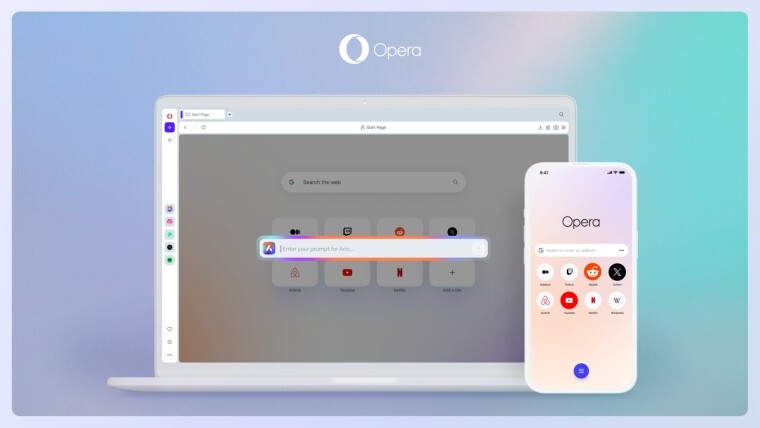
Amid the AI craze, Opera users get to decide which AI features they actually want or not
2024-03-10
Despite having only a small market share of 2.5 percent – half of Microsoft Edge’s – based on the latest data from StatCounter, Opera is one of the more innovative web browsers. Therefore, it is no surprise that it fully embraced the AI trend.
Last summer, the original Opera desktop browser was rebuilt and rebranded as Opera One. As part of that, Opera’s developers incorporated AI features. They embedded OpenAI’s ChatGPT and even integrated their own GPT-based AI chatbot Aria which has (unlike ChatGPT) access to real-time web data.
Now, Opera has launched a new initiative called AI Feature Drops. It allows its testers to try new features based on artificial intelligence in advance and, presumably, affect the feature set of the stable version as explained by Executive Vice President at Opera, Krystian Kolondra:
“We’ve started the AI Feature Drops Program to allow people to test our newest AI explorations that either will or won’t make it to the official version of Opera One. We are excited to let our most engaged users test and share their feedback and suggestions with us.”
AI Feature Drops program is available in early access as part of the Opera Developer variant of the browser aimed at devs and early adopters.
The company behind Opera believes AI will soon help users perform more elaborate browser tasks, thus enhancing their experiences on the web. As part of its presented commitment to artificial intelligence, Opera has announced just this week that it will soon be deploying a new, fully green-energy-powered AI cluster in Iceland to power its future AI services.
The new cluster is an NVIDIA DGX SuperPOD, equipped with the newest NVIDIA H100 Tensor Core GPUs and the NVIDIA AI Enterprise software platform. The full-stack system will work as a single AI cluster serving Opera’s AI workloads.